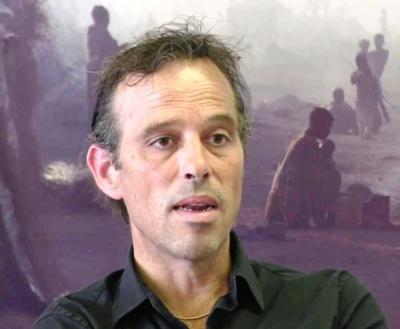Medicins Sans Frontières outline Libya migrant crisis

ROME-- Arjan Hehenkamp, general director of Medicins Sans Frontières Holland, described the shocking conditions migrants are forced to endure in Libya, and criticised European reaction to the crisis.
The press briefing took place at the Foreign Press Association on Monday.
Libya is the last route to Europe from Africa that has not yet been completely sealed off and, as Hehenkamp explained, is a disgustingly unsafe place for migrants. MSF has been working in the detention centres in Tripoli, and on search and rescue missions in the Mediterranean, for the past six to nine months.
In a state of civil war, the North African country lacks any central control, with three official governments, but the reality being that of militia rule. Across the country, there are various detention centres, which Hehenkamp says are better described as “human warehouses”, where migrants are held for indeterminate lengths of time, and with uncertain futures. The lawlessness of the country means that the detention centres are a militia-run business, with humans being the trading currency. The only way to escape is by paying the guards, and they then decide whether to send you into the Mediterranean or release you back into Tripoli.
The rooms are windowless, without air conditioning or sanitation and are packed full of people who have lost all their dignity and autonomy, at the mercy of the violent guards, who only let them out of the room occasionally. These are only the centres in Tripoli, which, scarily, are meant to be the most humane of the lot.
The migrants at risk of being captured and detained are not, as is commonly believed, only transiting ones, but are also Southern Saharan migrants who have lived and worked in Tripoli for years. The solution, therefore, of closing off Libya’s southern border is useless to tackle the enormity of the problem.
What’s more, it’s impossible to resolve the situation from within, as there is no NGO or international diplomatic presence in the country. It is too dangerous to send in aid workers- most international agents for Libya are based in Tunis, and therefore are unable to establish enough of a presence to make any real difference.
The solution which Italy, and by extension the EU, has adopted is that of providing Libya with financial aid to deter migrants from making the journey across the Mediterranean. Hehenkamp criticised this decision, stating that the only responsible thing to do is to allow people to escape these horrifying conditions, and that by believing this measure to be effective you are “purposely living between alternative facts and la la land.”
By making it more difficult for the migrants to leave Libya, we are forcing them to return to these detention centres, where they are likely to be subjected to all forms of physical and mental degradation.
Hehenkamp stressed that Libya is not and cannot be part of the solution to the migrant crisis. The only viable option for the foreseeable future is to get the migrants to somewhere safe, with a functioning government, and it’s unlikely that Libya will be either of those things for the next 10 years.


